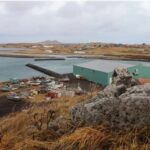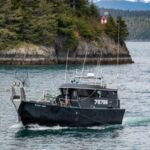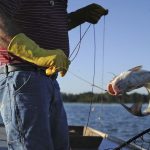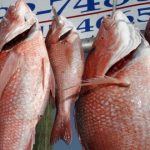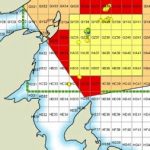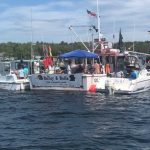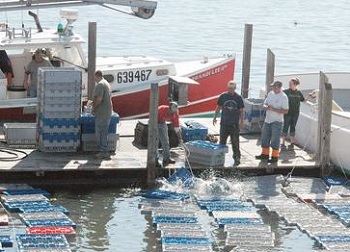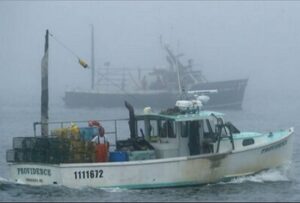Tag Archives: Martin Mallet
Lobster dispute settled a day after fishermen defy order to remove traps
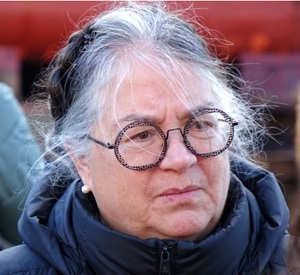 A brewing battle between the federal government and lobster fishermen in northern New Brunswick appears to have come to an end. A federal closure of lobster fishing zones in the Gulf of St. Lawrence off New Brunswick’s Acadian Peninsula was being defied by hundreds of fishermen refusing to remove their traps. A news release from the Department of Fisheries and Oceans sent Thursday evening says that lobster boats will be able to fish closer to shore. “I am pleased to see DFO has adjusted the closure requirements and harvesters can now set their traps up to the 10 fathom shallow water protocol management line for the remainder of the 15-day period,” said federal Fisheries and Oceans , in the release. more, >>CLICK TO READ<< 08:50
A brewing battle between the federal government and lobster fishermen in northern New Brunswick appears to have come to an end. A federal closure of lobster fishing zones in the Gulf of St. Lawrence off New Brunswick’s Acadian Peninsula was being defied by hundreds of fishermen refusing to remove their traps. A news release from the Department of Fisheries and Oceans sent Thursday evening says that lobster boats will be able to fish closer to shore. “I am pleased to see DFO has adjusted the closure requirements and harvesters can now set their traps up to the 10 fathom shallow water protocol management line for the remainder of the 15-day period,” said federal Fisheries and Oceans , in the release. more, >>CLICK TO READ<< 08:50
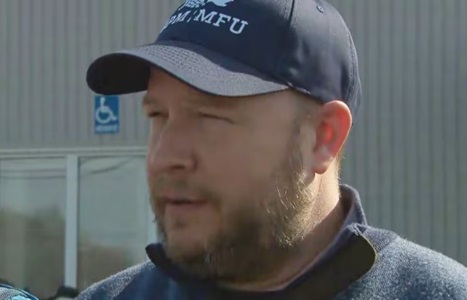
N.B. lobster fishermen defy DFO, leave traps in despite closure for North Atlantic right whales
Several fishing zones in the area were officially shut down early by the Department of Fisheries and Oceans at 5 p.m. Wednesday because of a North Atlantic right whale sighting. But at a meeting in Lamèque at the time of the deadline, about 200 members of the Maritime Fishermen’s Union decided not to remove their roughly 60,000 traps in the area. However, the fishermen say they will not go out Thursday in order to give the federal agency one more chance to negotiate. On Wednesday, a release from DFO said that the fishing zone closures, initially scheduled to last 10 days, would stay closed for the rest of the season. more, >>CLICK TO READ<< 06:56
Acadie-Bathurst MP Serge Cormier says he can no longer defend his government on right whale protection issue
 A northeast New Brunswick Liberal MP is joining the Maritime Fishermen’s Union in calling for a better balance between protecting endangered North Atlantic right whales and allowing commercial fishing operations. Acadie-Bathurst MP Serge Cormier criticized his government for extensive closures of fishing zones that he warned could result in “disastrous consequences” and economic losses of $25 to 30 million. “While we are trying to save an endangered species, these extreme measures are actually endangering our fishing industry and coastal communities,” Cormier said in a statement released Thursday. “I can no longer defend my government on this issue. I stand with the fishermen, the lobster and crab industry, the factory owners and workers, and the community members.” more, >>CLICK TO READ<< 13:14
A northeast New Brunswick Liberal MP is joining the Maritime Fishermen’s Union in calling for a better balance between protecting endangered North Atlantic right whales and allowing commercial fishing operations. Acadie-Bathurst MP Serge Cormier criticized his government for extensive closures of fishing zones that he warned could result in “disastrous consequences” and economic losses of $25 to 30 million. “While we are trying to save an endangered species, these extreme measures are actually endangering our fishing industry and coastal communities,” Cormier said in a statement released Thursday. “I can no longer defend my government on this issue. I stand with the fishermen, the lobster and crab industry, the factory owners and workers, and the community members.” more, >>CLICK TO READ<< 13:14
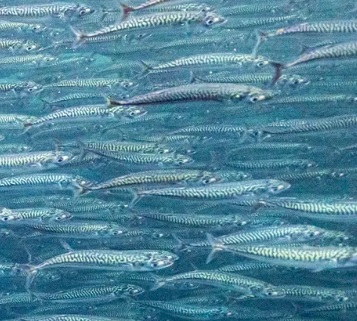
‘The people’s fish’: Atlantic mackerel stocks have collapsed – can a moratorium bring them back?
Canada’s Atlantic mackerel population is a shadow of what it once was, and its decline threatens the well-being of the people who depend on it. Mackerel supports one of Atlantic Canada’s top recreational fisheries, and one of its oldest commercial fisheries. The fish is also used for bait, and it has an important place in Indigenous cultures. The same migratory stock supports recreational and commercial fisheries in the U.S. Last March, the federal Department of Fisheries and Oceans closed Canada’s commercial and bait mackerel fisheries for one year and placed daily personal limits on the recreational fishery, to give the population time to rebound. But the U.S. fishery remains open, albeit with a reduced quota. Next week, federal Fisheries Minister Joyce Murray will decide whether to reopen the Canadian fishery. The DFO’s latest studies have found no sign of recovery in the mackerel stock. Photos, >click to read< 13:09
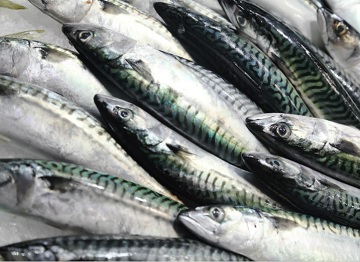
Atlantic mackerel population continues to decline a year after fishery moratorium
The Atlantic mackerel population is continuing to decline after a decade of falling numbers, according to a federal assessment presented to industry and environmental groups in Halifax this week. According to the 2022 assessment, mackerel stock remains in the “critical zone” — where serious harm is occurring — and the average number of fish reaching spawning age is only 27 per cent of what it was between 1969 and 2011. “The amount of young fish entering your population has been rather low in the last couple of years. That’s concerning,” Elisabeth Van Beveren, a biologist with the federal department of Fisheries and Oceans, said. In Newfoundland and Labrador, seafood companies and fishermen have claimed for years that DFO has it all wrong because mackerel are plentiful around their coast. >click to read< 15:32
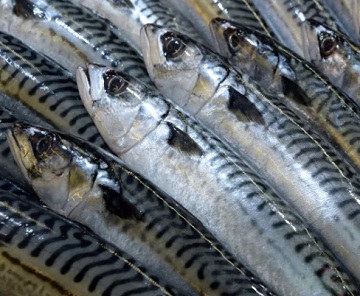
U.S. announces reduced East Coast commercial mackerel quota for 2023
The United States will proceed with a commercial fishery of the depleted East Coast mackerel stock it shares with Canada in 2023. The U.S. quota was released this week, putting pressure on Canada which has yet to decide whether it will continue a total moratorium it imposed in 2022 to help rebuild the population. The National Oceanic and Atmospheric Administration, the U.S. equivalent of the Fisheries and Oceans Canada (DFO), announced on Tuesday a total allowable catch of 3,639 metric tonnes. It was 27 per cent cut from 2022 in recognition that the transboundary stock remains in trouble and is overfished. >click to read< 19:01

DFO enacts new regulations aimed at depleted fish stocks
The Department of Fisheries and Oceans has enacted new regulations that bind its minister to rebuilding Canada’s depleted fish stocks and ensuring healthy ones stay that way, a move that comes weeks after it closed down two East Coast fisheries in the name of sustainability. The regulations are the teeth behind amendments to the Fisheries Act passed in 2019 and have been closely watched by the commercial fishing industry and environmentalists. The changes were posted Wednesday in the Canada Gazette. It identified 30 major fish stocks that will require a rebuilding plan,,, The minister for the department will have up to three years to produce a rebuilding plan once the stock has hit the limit reference point. >click to read< 16:32
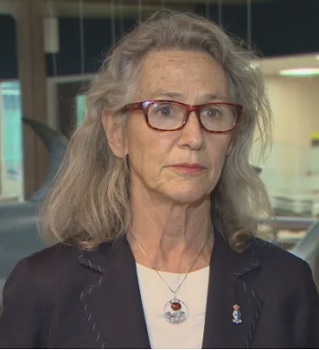
Immediate closure of herring and mackerel fisheries a broadside into coastal fishing communities
The Coalition of Atlantic and Québec fishing organizations questions the rapidity of the government decision and the lack of transparency in the science. “How do you go from a no closure to a closure situation without consulting commercial fishers,” said Martin Mallet, MFU Executive Director. “The 2021 stock assessment showed that the 4000t quota would enable recovery of the resource. This decision had been taken in collaboration with industry, and we were to revise the situation after the next stock assessment in 2023. Without consultation or even advance notice of a potential problem, DFO has slammed the commercial fishery.” This unilateral closure of the spring herring and mackerel commercial fisheries will have a major negative impact on the fishery since these fish are a significant source of bait for the lobster and snow crab fisheries. >click to read< 09:16
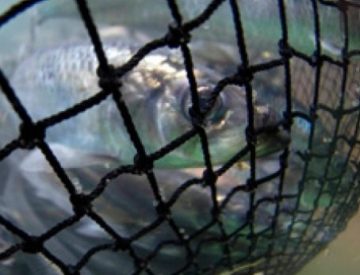
Ottawa announces closure of Atlantic mackerel, bait fisheries to restore stocks
Fishers on the East Coast are expressing their disappointment with Ottawa after DFO closed the Atlantic mackerel and commercial bait fisheries, citing concerns that dwindling stocks have entered a “critical zone.” The department said in a release Wednesday it was taking “urgent action” to help preserve the stock of southern Gulf spring herring and Atlantic mackerel with the closures in Atlantic Canada and Quebec. Fisheries Minister Joyce  Murray said she recognizes many harvesters depend on the fisheries, and she promised to work with them and others in the industry to preserve the stocks. Fishers in the sector, however, want the decision reversed. Martin Mallet, “It’s going to have a major impact — an atomic bomb impact — on our whole East Coast fishery, from Newfoundland to Quebec to southwest Nova Scotia,” >click to read< 18:52
Murray said she recognizes many harvesters depend on the fisheries, and she promised to work with them and others in the industry to preserve the stocks. Fishers in the sector, however, want the decision reversed. Martin Mallet, “It’s going to have a major impact — an atomic bomb impact — on our whole East Coast fishery, from Newfoundland to Quebec to southwest Nova Scotia,” >click to read< 18:52

Feds distribute first of 322 dormant commercial fishing licences to Maritime First Nations
The federal government has started to distribute dormant, or “banked,” commercial fishing licences to First Nations in the Maritimes to finally implement a 1999 Supreme Court ruling that First Nations are entitled to earn a moderate livelihood from the fishery. The first 10 “banked licences”, out of a pool of 322 available in the Maritimes, were issued this month to Elsipogtog and Esgenoôpetitj First Nations in New Brunswick as part of historic Rights and Reconciliation Agreements signed in August 2019.,, The pool of 322 banked licences cover a wide variety of species including lobster, scallop, swordfish, herring and oysters. The total breakdown per province: 99 licences in Nova Scotia, 122 in New Brunswick and 101 in Prince Edward Island. There is a complete list,,, >click to read< 17:34
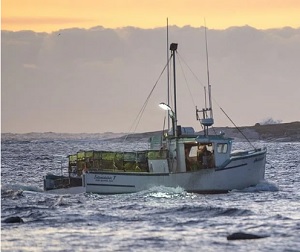
“Things could’ve been way worse”: Spring lobster season nears end amid coronavirus, “Things are stabilizing”
The Maritime Fishermen’s Union predicted a gloomy forecast for the spring season with the pandemic’s safety concerns, crushed markets and reduced processing capacity. But fishermen are taking it “day-by-day,” says the union’s executive director. “Things could’ve been way worse,” says Martin Mallet. “At least our fishermen have had a chance to go out and catch part of their catch.” Restaurants reopening is also helping market demand increase. >click to read< 08:49

Coronavirus: Atlantic Canada’s fishing industry calls on feds for help
Crab and lobster fisheries throughout Atlantic Canada have faced delayed season openings due to fears about the coronavirus spreading in small communities and close working conditions. A significant drop in prices due to a collapse in retail and restaurant markets in the United States, Japan and China, major export markets for Canada’s seafood, overshadow the start of the season for many. Responding to a question during Tuesday’s virtual House of Commons meeting, Fisheries Minister Bernadette Jordan said support for the industry would be announced in the coming days, but by Thursday no additional details were available. >click to read< 09:09
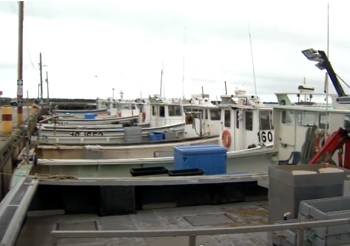
Coronavirus: ‘Extremely difficult’ for fishing industry to maintain health protocols if season proceeds: union
“Truth be told, it’s going to be extremely difficult,” says Martin Mallet, the executive director of the Maritime Fishermen’s Union. “The boats are not designed to enable social distancing.” A letter to the federal government, signed by Lobster Processors of New Brunswick and Nova Scotia and more than 20 other industry stakeholders, have called for a delay of at least two weeks.,, “But on top of that, we have some extremely serious issues with the markets right now, especially for lobster,” Mallet says. >click to read< 07:54

‘Find some good solutions’: governments, experts, fishermen prepare for 2020 right whale regulations
An annual roundtable meeting held by officials with the Department of Fisheries and Oceans has wrapped up after discussing how to deal with the declining North Atlantic right whale population. The subject has become controversial after at least nine confirmed deaths in 2019, with several preliminary findings indicating vessel strikes were the cause. Some of the deaths came despite the Canadian government cracking down tighter on fisheries closures and speed restrictions, but the impact on the fishing industry is part of what makes regulations such a controversial topic. >click to read< 08:43
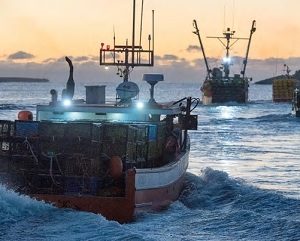
Bill C-68 will protect smaller inshore fishery operators from corporate takeover, group says
Trudeau government legislation that enshrines the independence of Atlantic Canada’s inshore fishing fleets and enhances protections for fish stocks and fish habitat has cleared the Senate. The news is a relief to Martin Mallet. “This is great news. We’ve been waiting for this for a long while,” said Mallet, executive director of the Maritime Fishermen’s Union.,,, Minister expects new Fisheries Act to pass. In North Vancouver, federal Fisheries Minister Jonathan Wilkinson also welcomed the Senate vote. >click to read<12:06
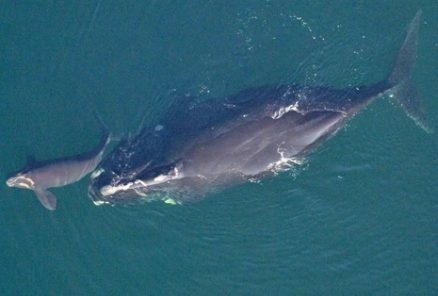
Measures to protect North Atlantic right whales have been effective, official says
Representatives of the fishing industry and Fisheries and Oceans Canada met in Moncton over the weekend to look at the impact protection measures were having on the North Atlantic right whale — and to help decide what should happen next year. The 2018 fishing season has been controversial, with fishermen in the Acadian Peninsula protesting the new federal measures that were put in place to protect the North Atlantic right whale. Some of those measures included closing several fisheries where whales were present in the Gulf of St. Lawrence, speed restrictions for boats and increased surveillance. >click to read<15:34
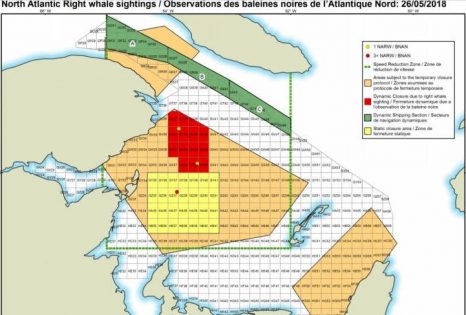
DFO will not change fishing area closures, despite proposed exemptions
In a statement released Friday, department officials said they had received proposals from the Maritime Fishermen’s Union and from the Regroupement des Pêcheurs professionnels du Sud de la Gaspésie asking the department to consider exempting shallow waters from temporary closures. However, the department has concluded that the measures will remain in place to protect the North Atlantic right whales from gear entanglements. “This course of action is based on the best science information available about the presence of right whales in our waters,” the statements said. >click to read<11:19
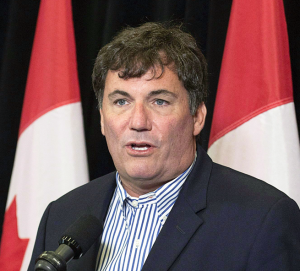
Proposal sent to minister – Fishermen propose ‘flexible’ closures to protect whales and livelihoods
Lobster fishermen are asking Fisheries Minister Dominic LeBlanc to consider a proposal that would allow them to continue fishing close to the shores of northeastern New Brunswick even if whales are spotted in the area. The proposal comes as fishermen become increasingly anxious about their shrinking fishing grounds as more areas close Wednesday afternoon after endangered right whales were spotted. Martin Mallet, executive director of the Maritime Fishermen’s Union, met with about 100 fishermen in Sainte-Marie-Saint-Raphaël on Tuesday evening. >click to read<13:12

Fisheries minister stands firm on disputed whale closures after meeting lobster industry
Federal Fisheries and Oceans Minister Dominic LeBlanc is standing firm on the new rules imposed on the lobster industry that were designed to protect endangered whales but left fishermen in shock and frustration. This year’s lobster-fishing plan for the Gulf of St. Lawrence region, introduced Tuesday, included many of the same protection measures announced in March for the snow crab industry, including controversial “no-fishing” zones.,, “Those right whales, make no mistake about it, are heading north,” he said. “If there were 90 identified by American surveillance, those right whales will be coming into Canadian waters in the days and coming weeks.” <click to read<18:21
P.E.I. fisheries minister, opposition concerned over new fishing rule >click to read<

Fishermen’s union requests emergency meeting with minister over new lobster rules
The Maritime Fishermen’s Union has requested an emergency meeting with Fisheries and Oceans Minister Dominic LeBlanc before the lobster season starts next week to discuss new measures aimed at protecting North Atlantic right whales in the Gulf of St. Lawrence. The union doesn’t understand why the strict protective measures, which include closures and rope limits, have been sprung on lobster fishermen, said president Carl Allen.,,, LeBlanc walked past reporters Wednesday when asked about the issue.>click to read<17:44
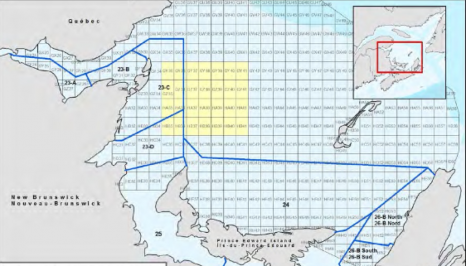
New rules sprung on lobster fishermen to protect whales
Parts of the water off the coast of New Brunswick will be closed to lobster fishing this season to protect the North Atlantic right whale, the Department of Fisheries and Oceans has told lobster fishermen.,, But Tuesday’s notice reveals many of the same measures announced in late March for the crab fishery will be applied to lobster fishing in the gulf as well. Lobster fishermen reacted with surprise and disappointment and suggested the new rules were mostly about the federal department’s public image. >click to read<17:48



































